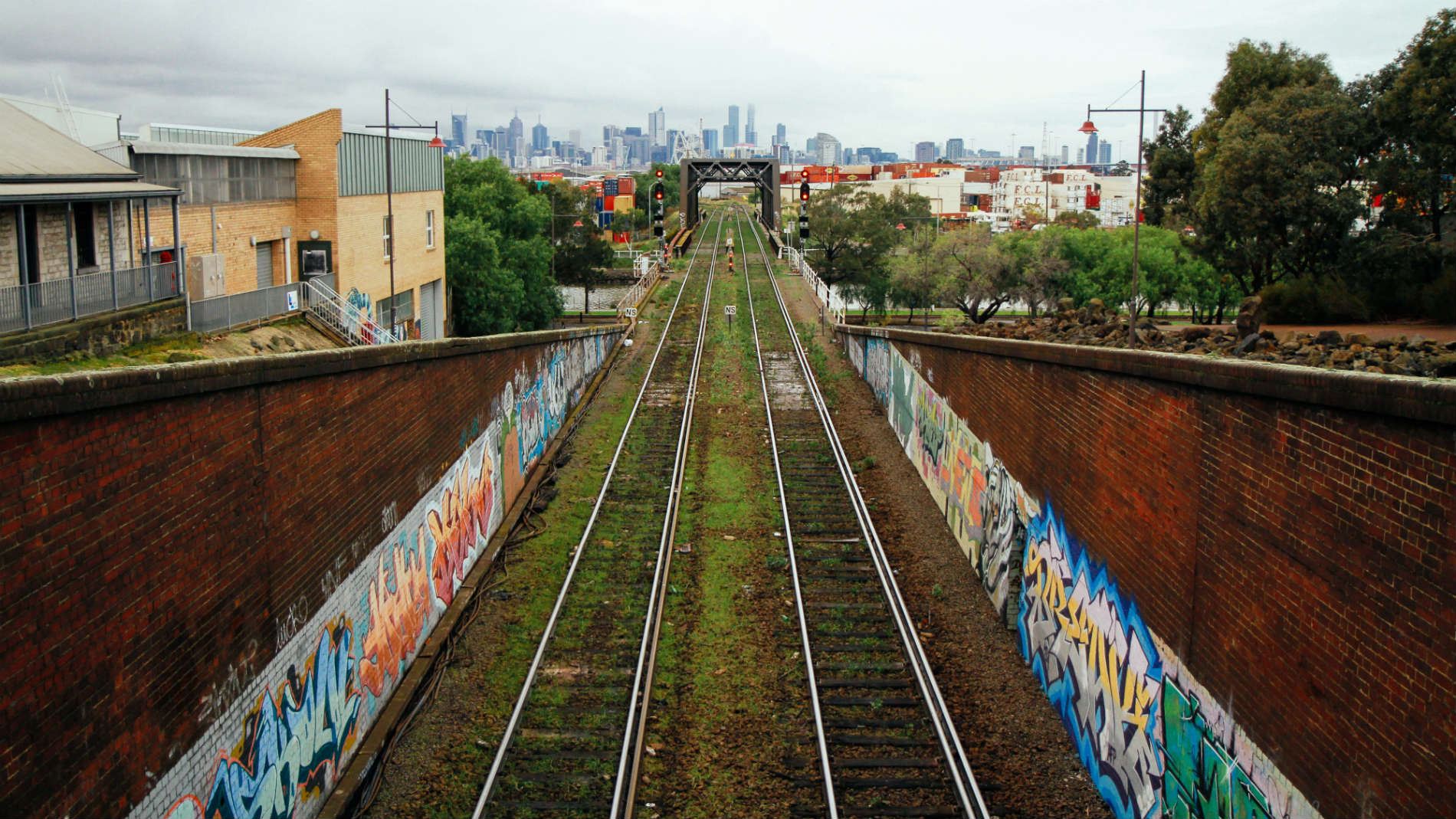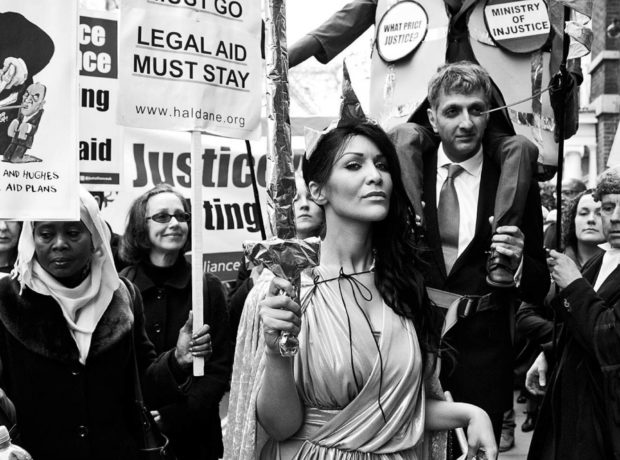Since 2013, funding cuts to social and welfare services, underpinned by a government rhetoric of austerity, have significantly increased demand for legal services in Australia, while simultaneously increasing the extent of unmet need. In this resource stricken environment, a hierarchy has emerged which has encouraged the prioritisation of one legal need above another, fuelling a robust contest in Australia’s contemporary legal arena.
This is particularly so in my home State of Victoria, where recent judicial and legal activism have ignited tensions in relation to a perceived prioritisation of government-funded criminal cases above, and at the expense of, serious civil and family law matters.
Each Australian State has a statutory body. In my State, it is ‘Victoria Legal Aid’ (VLA), which receives funding from both State and Federal government sources. This means that the State and Federal governments still control the amount of funding each State Legal Aid service receives (and their decision to cut these funds has had a significant impact on vulnerable individuals seeking legal assistance). But the decisions as to what legal services are restricted or removed, are decided by State Legal Aid agencies, like Victoria Legal Aid.
In Victoria, cuts to funding combined with increased demand for services has meant that VLA has had to make cuts to the legal advice and representation they fund; In criminal law matters, this has included denying legal representation to adults or young people (under 18 years) where imprisonment or detention order outcomes are unlikely, and, most controversially, funding instructing solicitors only in serious criminal trials. Even in those serious trials, funding for solicitors is only provided for trial preparation and two half days of court appearances, leaving a government-funded barrister to run the trial alone.
In the civil arena, there have also been many cuts, with some of the most devastating have occurred in family law issues. For instance, in a seemingly odd effort to ensure “fairness”, VLA introduced a policy that if one party in family law proceedings is unable to access legal aid, then the other party will also be denied legal aid. The results of this have been quite devastating, with several cases involving women who have accused their partners of family violence then being subjected to cross-examination by those partners. This has created concern that in the long term, there will be an increase in the vulnerability of women and children, making it even harder for them to escape violent and dangerous environments.
there remains ongoing criticism that criminal law is being ranked above all other legal need
In negotiating the funding cuts, VLA have been forced to reconcile legal ethics, morality and financial constraints in determining when and how they can assist the most people with decreasing funds. While VLA are attempting to do the best they can with limited and reducing resources, there remains ongoing criticism that criminal law is being ranked above all other legal need; a situation that has been intensified by the unique and unprecedented show of activism against VLA’s funding decisions in relation to criminal law by a number of leading Victorian higher court judges.
To place this stance in context, it is important to remember one of the most pivotal moments in Australian legal history: the High Court’s decision in Dietrich in 1992, which recognised legal representation as a central requirement for individuals to access a fair trial. While acknowledging that there is no absolute right in Australian law for an accused to access publicly-funded counsel, the court in this case made a binding determination that in most instances, a judge should grant a request for adjournment or stay proceedings when, through no fault of the accused, s/he is unable to obtain legal representation.
In contrast to other Australian states, where the presence of an instructing solicitor is not considered a necessity in order to ensure a fair trial, in Victoria, it is usual practice to have both an instructing solicitor and barrister present for the duration of the trial. The decision to remove this dual form of representation as a result of criminal legal aid cuts, was subject to extensive criticism from the criminal legal profession, and perhaps a little unexpectedly, from the judiciary, who considered it to undermine Dietrich and the integrity of the legal system.
Between February and May 2013, at least 47 applications were prepared to stay indefinitely criminal trial proceedings in Victoria’s higher courts, on the basis that an accused could not receive a fair trial without a fully funded instructing solicitor. For four months, judges accepted many of these applications, and it became a very public, central location for debating the definition of a “fair trial”. To give an indication of the types of comments publicly expressed by the judiciary against VLA, here are three brief excerpts from different cases heard during the four month period:
“[The absence of an instructing solicitor] substantially increases the likelihood of errors being made or important matters being overlooked by counsel – a risk that will not confront the prosecution. I am therefore of the view that in the circumstances as they are at present, the trial of the accused is likely to be unfair in the sense that it carries a risk of improper conviction” (Supreme Court Justice Lasry in R v Chaouk [2013] VSC 48 (10 February 2013)).
“This is a two-person case. I consider that one person, no matter how diligent or brilliant, simply cannot do to a proper standard what is expected of [the defence]. Put another way, I consider that I am unable to ensure that [the defendant] will receive a fair trial in the current circumstances” (Supreme Court Justice Forrest in MK v Victoria Legal Aid [2013] VSC 49 (13 February 2013)).
“The lack of an instructing solicitor at trial would be productive of a very real and substantial risk of improper conviction” (Court of Criminal Appeal in R v Chaouk [2013] VSCA 99).
Victorial Legal Aid was unsuccessful in its own legal challenge against the ‘activist’ judges, and was forced to overturn its policy and implement an interim guideline permitting funding for multiple legal representatives at trial. The forced shift in legal aid funding policy brought about by this unique form of activism was seen through the criminal lens as a ‘victory’ against some of the injustices arising from the government funding cuts. But from a civil perspective, the outcome had negative consequences for many vulnerable people attempting to access the law. This is because the limited pool of funds allocated to VLA to cover all areas of law – not just criminal – can only be stretched so far, and this decision meant the criminal law budget was effectively removing funding from individuals in family and civil law matters.
In publicly expressing his deep concerns on this forced policy reversal, VLA Managing Director, Bevan Warner, warned that the interim guideline was
not financially sustainable’ and ‘not the most equitable use of the legal aid fund,
when so much of our budget [was being] directed towards jury trials at the expense of other vulnerable clients’. Warner went on to highlight the damaging impacts of having to implement the interim guideline, claiming that VLA was ‘approaching a deficit this year greater than [that] recorded in 2011-12 … directing more funding to jury trials means that less money will be available for other vulnerable clients or services … and [we] will need to identify further savings [across the board] to compensate for the increased spending on criminal jury trials’. As VLA’s Criminal Law Director, Helen Fatourous acknowledged after the reversal, ‘spending on criminal trials costs us more per client than any form of legal representation’. This is despite the fact that the majority of criminal cases in Victoria, including those handled by legal aid’ are resolved by guilty plea rather than proceeding to a jury trial. This means that even in the criminal law setting, it is the minority of cases that are subject to this ‘beneficial’ change in funding guidelines.
As evident in Warner’s comments, the crisis in funding priorities has been well recognised by VLA. In January 2014, they produced a consultation paper seeking feedback from the community on improving the efficacy and efficiency of criminal trials. This was followed by an announcement in March that the review would extend to the decisions restricting funding in family law matters in an attempt to counter-balance some of the tension between the apparent hierarchy of criminal defendants over all other legal clientele. This was an important decision. Unlike criminal defendants, there is no system to monitor the potential number of individuals who drop out of civil and family law contests, and without legal support, there is a very real risk that civil and family law clients will simply disappear from the system, subject to the very real penalties that come from failing to respond to issues like bankruptcy, welfare, housing, divorce, custody and employment conflicts. Importantly, a lack of support can also result in some individuals remaining in highly volatile, vulnerable situations, such as an environment of family violence, for fear they are unable to leave without the guidance and support offered by government-funded legal services.
Under a justification of austerity, we have witnessed an almost irreparable shift in priorities away from welfare, to neo-liberal forms of governance
Of relevance well beyond the Australian context, it is vital that a new narrative around the law is created and the dominant view that legal advice is unnecessary, and that legal aid cuts are unavoidable, is discounted. Under a justification of austerity, we have witnessed an almost irreparable shift in priorities away from welfare, to neo-liberal forms of governance, which is re-shaping the operation of justice and raising questions about the values and procedures once considered standard legal practice. Today, access to justice is transforming in response to government funding cuts, to the point where accessing the law is becoming a contested privilege, rather than a fundamental right. In light of these manifestly damaging outcomes, it is important that criminal and civil law advocates work together to rebuild belief in the value of law; in the value of accessing and understanding law; and in the value of the quality of law – both civil and criminal. Without this, we run the risk of damaging the legal system irreversibly, and hiding the true extent of unmet legal need; an outcome which ultimately works to justify further short-sighted, harmful cuts to government funded legal assistance in the future.
Photo by Noël



